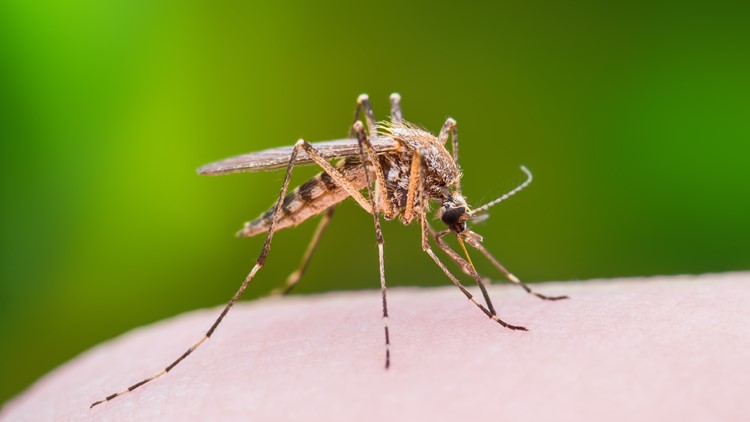CONCORD, N.H. — A batch of mosquitoes in New Hampshire has tested positive for the West Nile virus, the New Hampshire Department of Health and Human Services (DHHS) says. The positive batch, which is the first batch of the 2020 season to test positive for the mosquito-transmitted virus, was found in the City of Manchester.
N.H. DHHS is working in partnership with the City of Manchester Health Department to provide additional risk mitigation information to residents and people in surrounding towns.
N.H. State Epidemiologist Dr. Benjamin Chan explains West Nile virus (WNV) is transmitted to humans from the bite of an infected mosquito. Dr. Chan says, “The best way to prevent WNV and other mosquito-transmitted infections is to take steps to avoid mosquito bites by using an insect repellent effective against mosquitoes, avoid being outdoors between dusk and dawn when mosquitoes are most active, and remove any standing water from around the home, where mosquitoes reproduce.”
N.H. DHHS says WNV was first identified in N.H. in August of 2000 and has been detected every year for the past decade in the Granite State. The most recent human case of WNV in N.H. was in an adult in 2017.
According to the U.S. CDC, the WNV was first identified in the U.S. in 1999 at the Bronx Zoo in New York.
N.H. DHHS says typically, WNV activity increases in years where drought conditions exist. Even though the state has been experiencing cooler fall weather, the risk for WNV and eastern equine encephalitis virus (EEEV) will continue to increase until there is a statewide mosquito-killing hard frost.
Symptoms of WNV usually appear within a week after being bitten by an infected mosquito, although many people can be infected and not develop any symptoms, or only develop very mild symptoms.
Symptoms can include flu-like illness including fever, muscle aches, headaches, and fatigue. A very small percentage of individuals infected with WNV can go on to develop more serious central nervous system disease, including meningitis or encephalitis.
If you or someone you know is experiencing flu-like symptoms, including fever and headache, N.H. DHHS urges you to contact your local medical provider.



